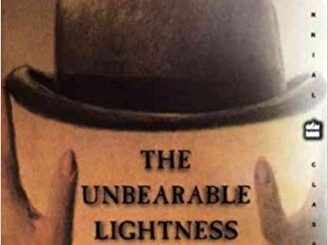Orientalism by Edward W. Said
Since the World Trade terror on September 11th, many people in the West have been solemnly reading histories of the Middle East and Islam, hoping to understand what happened. One of the most interesting books on the subject remains the ground-breaking study, Orientalism, by Professor Edward W. Said of Columbia University, a Palestinian Arab who was educated in Cairo and later the United States. Orientalism, which was nominated for the National Book Critics Circle Award and is often taught in college courses, was originally published in hardcover by Random House in 1978. It has reappeared since in countless reprintings of a fancy trade paperback from Vintage, with a new afterward added in 1994.
In recent years, Edward Said has become one the most coherent spokespeople of the Palestinian point of view and is often found on the lecture circuit or being interviewed on National Public Radio. I first met Professor Said in another guise entirely, as the best teacher I ever had in college — he taught a Modern English Literature course I took in the mid-1960s at Columbia. In those palmy days before “terrorism,” when we only had Vietnam to worry about, Said would hold forth twice a week with lucid brilliance on Yeats, Hardy, D.H. Lawrence, James Joyce, and his most special enthusiasm of all, Joseph Conrad.
Professor Said did not suffer fools gladly. I remember him railing at us, challenging our slouchy thinking, passionately declaring one thing or another — and usually calling on me when I was least prepared. I’m not sure I entirely liked him, but I never forgot him; he was one of those teachers you sometime get, if you are lucky, who make you a little uncomfortable, but end up altering your life. His books are demanding, original, and provocative — just like the man. Orientalism, the work which made his reputation, is the deliberately old-fashioned term for the European science of studying that exotic land of gaudy pashas and harems, the Orient — not the Far East, in this original usage, but the Middle East, as in the old Christmas carol, “We Three Kings of Orient are.”
As for the “Orientalists” themselves, Said describes a fascinating parade of Europeans from the late 18th century on, starting with the French scholars who accompanied Napoleon to Egypt, naively eager to classify and dissect, almost as though they were butterfly collectors. Sex was one of the allures of the Orient, a sense that anything was possible on those famously hot Arabian nights, and Said’s list of scholar-adventurers includes some fairly outrageous figures, such as Sir Richard Burton and T.E. Lawrence (of Arabia), who liked to dress up in robes and play at being Bedouins, and dally with native women . . . or boys.
Beyond the history of these men, and their studies, Edward Said’s focus is a subtle one: How we understand things. He is concerned with the illusions we have about what is the “Western mind” as opposed to that most perplexing item, the “inscrutable” Oriental way of thinking. He concludes that human beings tend to see what they want to see, rather than what is real, and that the European scholars who journeyed so eagerly to Arab lands were particularly self-serving. In Said’s opinion, they were “the corporate institution for dealing with the Orient — dealing with it by making statements about it, authorizing views of it, describing it, . . . teaching it, settling it, ruling over it: in short, Orientalism [is] a Western style for dominating, restructuring, and having authority over the Orient.”
These are fighting words. The implication is that all our so-called Western “experts” on such places as Egypt — all those talking heads you see on CNN — are simply practicing a kind of intellectual colonialism. It’s no wonder that the political left has tried to appropriate Edward Said for its own purpose, but in fact Said refuses to be drawn into a partisan fight. His interest is non-partisan, and Orientalism remains a fascinating study of how we tend to see other cultures through the opaque glasses of our own self-interest.
This is a demanding book, as I have indicated, but if you have the patience for it, Orientalism is one of those works that has the power to totally turn around your thinking. It’s main shortcoming — or perhaps it’s better to say the self-imposed limits of its study — is that while Said tells us very clearly what the Middle East isn’t (it’s none of our Western preconceptions, he says), he does not go into what it is. He hints just a little towards the end that when push comes to shove, perhaps there’s no difference at all between us — that the notion of “rational” West and “inscrutable” East is all equal nonsense, and that beneath our turbans and bowler hats we are all almost frighteningly the same.
- National Epilepsy Day 2023:Common Signs And Symptoms - November 17, 2023
- Top 10 Cosmetic Packaging Designers in the USA - April 12, 2023
- Luxury Website Designers: The Ultimate Guide to Creating a High-End Website - April 10, 2023


